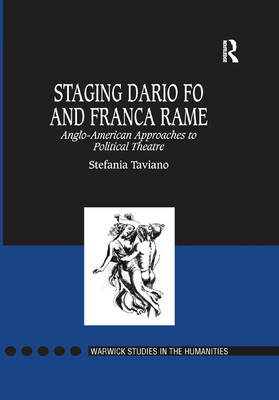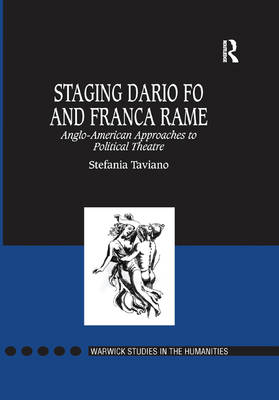
- Retrait gratuit dans votre magasin Club
- 7.000.000 titres dans notre catalogue
- Payer en toute sécurité
- Toujours un magasin près de chez vous
- Retrait gratuit dans votre magasin Club
- 7.000.0000 titres dans notre catalogue
- Payer en toute sécurité
- Toujours un magasin près de chez vous
58,45 €
+ 116 points
Format
Description
This is the first extended treatment of the English translations, stagings, and reception of the political plays of Dario Fo and Franca Rame. Focusing on the United Kingdom and the United States, Stefania Taviano offers a critique of the cultural stereotyping and political conservatism that have pursued these playwrights in translation and argues for the possibility of remaining true to Fo and Rame's political commitment while preserving the comic nature of their plays. Taviano shows how the choices made by the translators and stagers of Fo and Rame's political theatre reveal attitudes toward foreign cultures and theatre generally and Italy in particular. Among the questions she poses are 'What characterizes the process of acculturation that takes place when political theatre is transposed from one culture to another?' 'To what extent are images of foreign literary production affected by dominant translation practices and theatre traditions?' Perhaps most important, 'What constitutes political theatre in a given society, and how are such definitions used to categorize and contain theatre texts that are disturbing, challenging, and difficult to stage?' Her book concludes with an investigation of the meaning of Fo and Rame's political theatre today that points the way for future critical studies of the politics behind the translation and stage production of political theatre outside its culture of origin.
Spécifications
Parties prenantes
- Auteur(s) :
- Editeur:
Contenu
- Nombre de pages :
- 146
- Langue:
- Anglais
- Collection :
Caractéristiques
- EAN:
- 9780367887889
- Date de parution :
- 12-12-19
- Format:
- Livre broché
- Format numérique:
- Trade paperback (VS)
- Dimensions :
- 152 mm x 229 mm
- Poids :
- 279 g

Les avis
Nous publions uniquement les avis qui respectent les conditions requises. Consultez nos conditions pour les avis.






